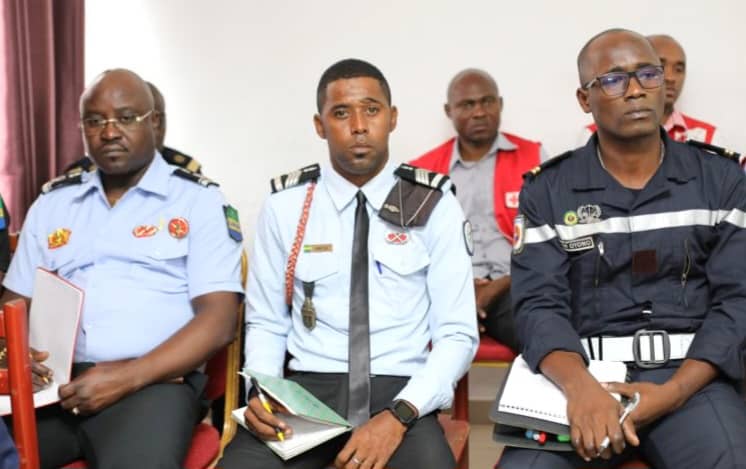Billionaire Businessman Offered Key Defense Position
In a move that has raised eyebrows, President Trump has reportedly tapped billionaire investor Stephen Feinberg for a top position at the Pentagon. Sources close to the situation reveal that Feinberg has been offered the role of Deputy Secretary of Defense, the No. 2 job at the Department of Defense.
A Controversial Choice:
Feinberg, the founder and CEO of private equity firm Cerberus Capital Management, is known for his aggressive investment strategies and close ties to the Trump administration. His potential appointment has sparked debate, with some questioning whether his business dealings could pose a
conflict of interest.
“This is a troubling choice,” commented one political analyst, speaking on condition of anonymity. “Feinberg’s company has a history of investment in defense contractors. How can we be sure his decisions won’t be influenced by those interests?”
Others argue that Feinberg’s business acumen and understanding of the private sector could be valuable assets to the Department of Defense. They point to his experience managing large, complex organizations and his track record of success in turning around struggling businesses.
Feinberg’s Connections to the White House:
This is not Feinberg’s first foray into the Trump administration.
He previously served on the President’s Intelligence Advisory Board and has been a regular advisor on defense and national security matters. His close relationship with Trump is seen as a key factor in his selection for this prestigious position.
Concerns Linger
Despite Feinberg’s qualifications, concerns linger about the potential for conflicts of interest.
Critics point to Cerberus’s extensive holdings in the defense industry, suggesting that he could be tempted to favor contracts for companies in which he has a financial stake.
“This appointment raises serious ethical questions,” a watchdog group representative stated.
“We need transparency and rigorous oversight to ensure that Mr. Feinberg’s decisions are made in the best interests of national security, not his own financial interests.”
It remains to be seen whether Feinberg will accept the offer and what impact his appointment will have on the Department of Defense.
However, his selection is sure to fuel ongoing discussions about the influence of private interests on government policy.
How might Feinberg’s lack of direct military experience impact his ability to lead the Department of Defense?
Billionaire Businessman Offered Key Defense Position: An Interview with Defense Analyst Dr. Emily Carter
**Host:** Welcome back to the show. Joining us today is Dr. Emily Carter, a renowned defense analyst, to discuss the breaking news surrounding President Trump’s reported offer to billionaire investor Stephen Feinberg for the position of Deputy Secretary of Defense. Dr. Carter, thank you for being with us.
**Dr. Carter:** It’s a pleasure to be here.
**Host:** Dr. Carter, this appointment has certainly stirred controversy. Can you shed some light on why Feinberg’s potential selection has raised eyebrows?
**Dr. Carter:** Absolutely. Stephen Feinberg is known for his aggressive investment strategies and his firm, Cerberus Capital Management, has a history of investing in defense contractors, even owning one outright in the past. This raises concerns about potential conflicts of interest, as Feinberg could be in a position to benefit financially from decisions made at the Pentagon. [ [1](https://defensecommunities.org/2024/12/investor-and-former-intelligence-board-adviser-is-trumps-pick-for-deputy-secdef/) ]
**Host:** Some argue that Feinberg’s background in finance could bring valuable expertise to the Department of Defense. What are your thoughts on that?
**Dr. Carter:** While Feinberg certainly has impressive financial acumen, the Pentagon requires expertise in military strategy, national security, and international relations. It remains to be seen how his business experience would translate to effectively managing the complex challenges facing the Department of Defense.
**Host:** This isn’t Feinberg’s first foray into government service. He previously served on the President’s Intelligence Advisory Board. Do you think that experience makes him a more suitable candidate this time around?
**Dr. Carter:** Serving on an advisory board is quite different from overseeing the day-to-day operations of a massive bureaucracy like the Department of Defense. It’s a far more demanding role requiring extensive knowledge of military operations and a deep understanding of geopolitical complexities.
**Host:** Given the potential conflicts of interest and the lack of direct military experience, what do you foresee as the biggest challenges Feinberg might face if he accepts this position?
**Dr. Carter:** Gaining the trust and respect of career military personnel and navigating the complex web of defense contracts would be major hurdles. Public scrutiny regarding any perceived conflicts of interest could also pose a significant challenge.
**Host:** Dr. Carter, thank you for sharing your insights on this developing story. It will certainly be interesting to see how this situation unfolds.
**Dr. Carter:** It’s certainly a story to watch closely.



